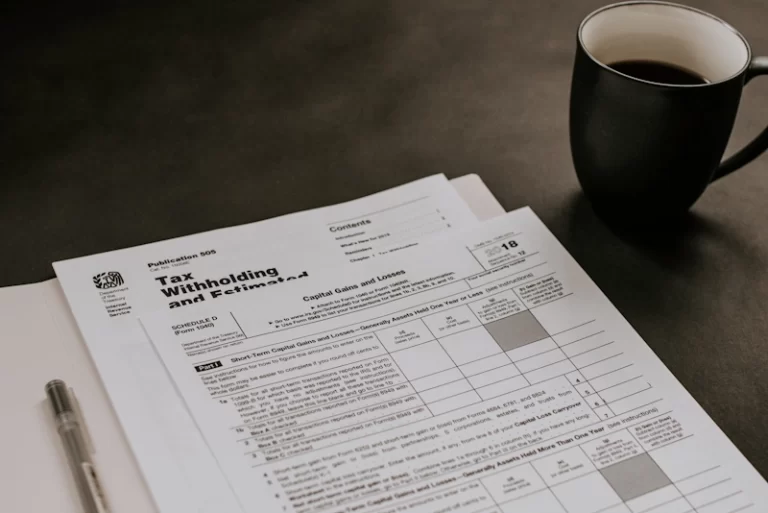Singapore has emerged as a highly attractive destination for foreign entrepreneurs seeking to establish their companies. Its robust business environment, coupled with advantageous tax benefits and government support, presents numerous opportunities for foreign investors.
However, the process of company incorporation in Singapore can be intricate for foreigners due to specific requirements and regulations. Understanding the available business entities, such as Private Limited Company (Pte Ltd), Sole Proprietorship, and Limited Liability Partnership (LLP), is crucial for foreigners considering registering a company in Singapore.
In this article, we will delve into the key steps and considerations involved in incorporating a company in Singapore, along with the benefits and available business structures. Whether you’re an aspiring entrepreneur or an established company, gaining insight into the company incorporation process in Singapore is essential for a successful business venture in the country.
Why Singapore is a Preferred Destination for Foreign Entrepreneurs
Singapore has earned acclaim as a premier destination for foreign entrepreneurs, owing to a combination of factors. Its business-friendly policies, unwavering political and economic stability, and strategic positioning in Southeast Asia render it an ideal hub for business endeavors. Moreover, Singapore boasts a robust legal framework, staunch protection of intellectual property rights, and an efficient corporate regulatory authority in the form of ACRA, all of which serve to entice foreign professionals and investors alike.
Attractiveness of Singapore’s Business Environment
Singapore’s business environment is renowned for its attractiveness and supportiveness towards new business operations. Government agencies like ACRA facilitate a streamlined registration process, easing the establishment of companies for foreign entrepreneurs. Moreover, Singapore’s business structure affords separate legal identity to foreign companies, ensuring a level of liability protection. The simplicity and efficiency of Singapore’s company registration process make it a top choice for foreign entrepreneurs seeking to initiate a business venture.
Singapore’s robust legal framework extends to intellectual property protection, offering significant advantages to foreign companies. Recognizing the value of intellectual property rights, Singapore provides a secure environment for businesses to safeguard their innovations and creations. With stringent protections in place, foreign companies can confidently focus on business growth and innovation, knowing that their intellectual property is safeguarded.
Opportunities for Foreign Investors in Singapore
Foreign investors in Singapore have access to a multitude of business opportunities and investment incentives. The country’s business structure, coupled with legal identity protection and tax benefits, presents an attractive proposition for foreign professionals and companies alike. Singapore offers a competitive corporate tax rate along with various tax incentives and exemptions tailored to specific business activities. These benefits significantly alleviate the tax burden for foreign companies, allowing them to reinvest earnings into business operations and foster growth.
Moreover, Singapore serves as a hub for foreign professionals, providing employment opportunities across diverse industries. The country’s reputation as a global business hub, combined with supportive policies for foreign professionals, enables foreign companies to attract top talent from around the world. This conducive environment further enhances Singapore’s appeal as a preferred destination for foreign investors seeking to capitalize on its myriad opportunities.
Understanding the Process of Registering a Company in Singapore as a Foreigner
There are specific steps to follow, regulatory requirements to meet, and documentation to prepare. In this section, we will delve into the key aspects of the incorporation process, including the role of ACRA, special requirements for foreigners, and the necessary steps towards company incorporation in Singapore.
The Role of ACRA in Company Incorporation
To establish a company in Singapore as a foreigner, specific steps must be followed. The Accounting and Corporate Regulatory Authority (ACRA) oversees this process. Key steps include obtaining approval for a unique company name and preparing required documents like the memorandum and articles of association. Utilizing a registered filing agent can streamline the process.
Special Requirements for Foreigners
Special requirements for foreigners include having at least one resident director in Singapore, who can be a citizen, permanent resident, or hold a valid employment or entrepreneur pass. Additionally, a registered office address in Singapore is necessary, which must be a physical address.
Key Steps to Company Registration in Singapore for Foreigners
When registering a company in Singapore as a foreigner, certain key steps must be followed to ensure a smooth process. These steps include acquiring approval for the company name, preparing necessary documentation, and filing for business registration with the Accounting and Corporate Regulatory Authority (ACRA). By following these steps diligently, foreign entrepreneurs can establish a robust business presence in Singapore with confidence.
Acquiring Approval for Company Name
The process of obtaining approval for a company name is crucial, as it ensures uniqueness, relevance, and compliance with ACRA’s guidelines. To acquire approval, foreign entrepreneurs must first verify that their chosen name isn’t already in use or reserved by another Singaporean company. Once a suitable name is selected, a name application is submitted to ACRA for review.
It’s essential to provide a clear and concise description of the company’s activities during the name application process. This description should accurately represent the business’s nature and adhere to regulatory requirements. If approved, the company name is reserved for 120 days, during which the incorporation process must be completed to secure the name.
A unique and compliant company name not only sets the business apart in the market but also establishes professionalism and fosters trust with stakeholders.
Preparation of Necessary Documentation
This step involves gathering essential legal and business documents required for incorporation, ensuring accuracy, compliance, and a seamless process. The memorandum and articles of association must adhere to regulatory standards and reflect the company’s operations, objectives, and governance practices accurately.
Depending on the business’s nature and regulatory requirements, other documents such as a statutory declaration of compliance and consents to act as a director and secretary may be necessary. Engaging a registered filing agent experienced in company incorporation services can streamline this process, ensuring compliance and providing guidance.
Appointing a Local Director and Corporate Secretary
Singapore law mandates that every company registered in the country must have at least one director who is a resident. This individual can be a citizen, permanent resident, or hold a valid employment or entrepreneur pass.
Additionally, a corporate secretary is crucial for maintaining regulatory compliance and overseeing corporate governance matters. They ensure adherence to legal and licensing requirements, facilitating smooth operations.
Filing for Business Registration with ACRA
The final step entails submitting the required documents and information to ACRA, ensuring compliance with regulatory requirements, and completing the incorporation process. Foreign entrepreneurs must provide details such as the company’s activities, shareholders, directors, registered office address, and corporate secretary during the registration process.
ACRA reviews the submitted documents to ensure compliance with regulatory requirements. Upon approval, ACRA issues the certificate of incorporation, officially recognizing the company as a legal entity in Singapore.
By following these key steps diligently and seeking assistance when needed, foreign entrepreneurs can navigate the company registration process in Singapore successfully, laying a strong foundation for their business endeavors in the country.
Opening a Corporate Bank Account
Opening a corporate bank account is essential for managing financial transactions effectively. Foreign companies seeking to establish a presence in Singapore must provide pertinent documents such as the certificate of incorporation, memorandum and articles of association, and identification documents of directors and signatories.
Depending on the bank, additional documents like proof of address, business profile, and activities may be required. Choosing the right bank is crucial, considering factors such as services offered, fees, and compatibility with the company’s needs.
Obtaining Necessary Work Passes
Foreign entrepreneurs and employees intending to work in Singapore must obtain the appropriate work passes or permits. These permits facilitate legal employment and residence in the country, ensuring compliance with immigration laws.
Compliance with Legal and Licensing Regulations
Adhering to legal and licensing regulations is imperative for operating a business in Singapore. This includes obtaining relevant licenses and permits based on the nature of the business activities.
Ensuring compliance with these regulations not only fosters a conducive business environment but also mitigates the risk of penalties or legal issues.
By diligently addressing these post-incorporation obligations and requirements, foreign companies can establish a solid foundation for their operations in Singapore and navigate the regulatory landscape with confidence.
The Need for Compliance with Legal and Licensing Regulations
Compliance with legal and licensing regulations is imperative for foreign-owned companies in Singapore, as it signifies adherence to corporate regulatory authority, government directives, and industry-specific standards. Let’s delve into the significance of legal compliance and the licensing requisites that foreign entities must meet in Singapore.
Importance of Navigating Legal Compliance
Adhering to legal compliance is paramount for foreign companies operating in Singapore. It underscores their dedication to ethical business conduct, robust corporate governance, and transparent operations. Failure to comply can lead to severe repercussions, including legal ramifications, financial penalties, reputational harm, and potential closure.
Singapore boasts a robust legal framework, with various government agencies overseeing specific industries. For instance, the Monetary Authority of Singapore (MAS) regulates financial services, the Ministry of Manpower (MOM) governs employment practices, and the Intellectual Property Office of Singapore (IPOS) safeguards intellectual property rights.
Licensing Requirements for Foreign-Owned Businesses
Foreign-owned enterprises in Singapore must fulfill specific licensing requisites tailored to their business activities. These requirements aim to regulate operations, uphold consumer rights, and preserve market integrity.
Licensing prerequisites vary across industries, with different government bodies supervising licensing procedures within their respective domains. For instance, the Monetary Authority of Singapore (MAS) oversees financial services licensing, while healthcare services fall under the purview of the Ministry of Health (MOH), and educational services are regulated by the Ministry of Education (MOE).
In certain instances, foreign companies may be required to engage a local director or nominee director, as some licenses necessitate a resident of Singapore to assume personal responsibility for regulatory compliance.
Various Business Structures Available in Singapore for Foreigners
Selecting a suitable business structure is a crucial decision for foreign entrepreneurs looking to establish a company in Singapore. In this section, we will explore the three main business structures in Singapore for foreigners: private limited company (Pte Ltd), sole proprietorship, and limited liability partnership (LLP).
Private Limited Company (Pte Ltd)
A Pte Ltd is the preferred choice for businesses in Singapore due to its separate legal entity status, providing limited liability protection to shareholders. This structure ensures that the company’s activities and liabilities are distinct from those of its owners, safeguarding personal assets in case of business-related risks. With easy ownership transfer and credibility, Pte Ltd is ideal for investors seeking flexibility and growth.
Sole Proprietorship
Sole proprietorship, owned by a single individual, is the simplest business structure, with minimal legal formalities and compliance obligations. While it doesn’t require separate registration, it lacks limited liability protection. This structure suits small-scale operations and professionals preferring simplicity, but it’s crucial to consider personal liability and tax implications.
Foreigners who are residing overseas and want to register either a sole proprietorship or a partnership must appoint at least one locally resident authorized representative.
Limited Liability Partnership (LLP)
LLP offers partners limited liability protection, akin to a Pte Ltd, shielding personal assets from business risks. It requires registration, a unique name, a partnership agreement, and compliance with regulations. Ideal for service-based professionals, LLP allows collaboration while ensuring limited liability.
A foreigner, who wants to register an LLP in Singapore, is required to appoint a locally resident manager.
Factors Influencing the Selection of a Business Structure
Several factors influence the selection of a business structure in Singapore, including the number of owners and partners, initial investment, capital requirements, liability concerns, and tax implications.
Number of Owners and Partners
Sole Proprietorship: Owned by a single individual, offering complete control and simplicity in decision-making.
Private Limited Company: Allows multiple shareholders, facilitating business growth and capital raising.
Limited Liability Partnership (LLP): Requires at least two partners, combining limited liability with partnership flexibility.
Initial Investment and Capital Requirements
Sole Proprietorship: Requires lower initial investment, funded from personal finances with simplified tax filing.
Private Limited Company: Involves higher initial investment for separate legal entity registration, compliance, and share issuance.
LLP: May require capital contribution from partners, depending on the nature of business activities.
Liability Concerns and Tax Implications
Sole Proprietorship: No limited liability protection, personal assets at risk, and personal income tax obligations.
Private Limited Company: Offers limited liability protection, corporate tax rates for business profits, and safeguarding personal assets.
LLP: Provides limited liability protection to partners, personal income tax obligations, and flexibility in partnership structure.
Benefits of Setting up a Private Limited Company in Singapore
Setting up a private limited company in Singapore offers numerous benefits, making it a favored choice among foreign professionals and companies. This business structure provides:
Separate Legal Entity: A private limited company stands as an independent entity with its own rights, liabilities, and obligations. This separation shields shareholders from personal liability, facilitates property ownership, contract agreements, and legal actions in the company’s name. It also allows for seamless ownership transfer, unaffected by changes in membership.
Capital Raising Opportunities: With its legal entity status and limited liability, a private limited company can raise capital through share issuance to both local and foreign investors. Shareholders can contribute capital, and profits can be reinvested for expansion. The company’s separate legal identity offers security to creditors, making it an attractive option for investment.
Limited Liability for Shareholders: Shareholders’ personal financial risk is minimized as their liability is confined to any unpaid shares, safeguarding personal assets from business-related risks. The company’s legal identity also shields shareholders from legal claims, boosting investor confidence and fostering entrepreneurship.
Easy Transfer of Ownership: Ownership transfer in a private limited company is facilitated through transparent share buying or transferring procedures guided by shareholder agreements and company by-laws. The separate legal entity status ensures smooth ownership transitions, promoting business continuity and attracting investors seeking flexible ownership transfer and exit strategies.
Overall, the private limited company structure offers a secure framework for business operations, growth, and investment opportunities in Singapore’s dynamic business environment.
Understanding Singapore’s Employment Regulations
Understanding Singapore’s employment regulations is crucial for foreign entrepreneurs. Key considerations include:
Hiring Local Employees: Singapore prioritizes fair employment practices and benefits for local residents. Employers must comply with regulations regarding recruitment, work permits, and employment contracts. Strategic hiring of local talent fosters integration into the business community and provides insights into the local market.
Adhering to Regulations: Compliance with employment regulations is essential for legal operations. This includes obtaining a Letter of Consent (LOC) from the Ministry of Manpower (MOM) for Dependent’s Pass (DP) holders managing the business. Employers must meet eligibility criteria, adhere to employment pass requirements, and fulfill local directorship obligations. Stringent compliance is also necessary for registering branch or representative offices in Singapore, emphasizing fair employment practices and workplace diversity.
Annual Filing Requirements and Deadlines in Singapore
Annual returns, financial statements, and tax filings must be submitted to ACRA within the stipulated deadlines. It’s essential to stay informed about the specific deadlines and requirements based on the company’s business profile and structure. Maintaining accurate records and seeking professional guidance can help ensure timely compliance with all annual filing obligations, contributing to the smooth operation of the business within the regulatory framework.
Importance of Timely Filing
Adhering to annual filing deadlines is crucial to avoid penalties, legal implications, and registration complications. Engaging a certified filing agent is advisable for companies to guarantee precise and punctual annual filing. Timely submission demonstrates a company’s dedication to corporate governance, transparency, and regulatory adherence. Emphasizing the importance of on-time filing underscores a company’s obligation to fulfill annual reporting requirements and uphold corporate regulatory standards.
Consequences of Non-Compliance
Failure to comply with legal requirements can have severe implications for foreign business owners. Penalties, legal actions, or even business closure may result from non-compliance, detrimentally affecting operations and reputation. Non-compliance may lead to financial losses and impede growth opportunities. Understanding the consequences of non-compliance encourages a proactive approach to regulatory adherence, ensuring smooth business operations and long-term success.
How Does the Government Support Foreign-Owned Businesses?
The Singapore government provides various support schemes to aid foreign-owned businesses. These include grants, tax incentives, and resources to foster growth. With a conducive business environment and favorable policies, the government actively encourages foreign investment in Singapore. Understanding these support measures is crucial for foreign entrepreneurs to capitalize on business opportunities.
What are the Incentives Available for Foreign Investors?
Foreign investors in Singapore can take advantage of various incentives offered by the government. These incentives include tax exemptions, grants, and subsidies, aimed at attracting foreign investment and promoting business expansion. Understanding these incentives is crucial for optimizing business strategies and establishing a strong presence in Singapore’s thriving economy.
FAQs
Here is the updated list of FAQs with answers on incorporating a company and registering a foreign company in Singapore as a foreigner:
1. What is a foreign-owned company?
A foreign-owned company is a business that is owned by individuals or entities from another country. This type of company can operate in the host country, but its ownership and management are based in a foreign location. In some cases, a foreign-owned company may be required to comply with different regulations and laws than domestically-owned companies. Generally, foreign-owned companies are established to take advantage of new markets, resources, or labor pools in other countries.
2. What type of companies can foreigners incorporate in Singapore?
Foreigners can incorporate private limited companies, public limited companies, subsidiaries of foreign companies, and branch offices in Singapore. The most common type for foreigners is a private limited company.
3. What are the requirements for foreigners to incorporate a company in Singapore?
The key requirements are that there must be at least one shareholder and one director who can be foreigners. At least one of the director must be legally allowed to reside in Singapore and have a local address. You will also need to have paid-up capital of at least S$1.
4. How long does it take to set up a company in Singapore as a foreigner?
If the application meets all requirements, it takes 1-3 working days for the company to be incorporated after submission of all documents and payment. The entire process usually takes 2-4 weeks including preparation of documents.
5. What are the post-incorporation compliance requirements and yearly costs?
Key compliance requirements are filing annual returns and tax returns, auditing requirements if annual revenue exceeds S$5 million, and legal obligations prescribed in the Companies Act. Typical yearly costs range from S$600 to S$1,000 for corporate secretarial compliance services and filing fees.
6. As a foreigner, what kind of Singapore business visa would I need?
If you want to relocate to Singapore to manage your company, you would need to apply for an EntrePass visa. The requirements include minimum paid-up capital of S$50k, hiring at least 2 local employees within 6 months, and having a substantial business plan.
7. What types of foreign entities can register in Singapore?
Overseas companies, foreign corporate entities, and foreign businesses can register a branch, representative office, or subsidiary company in Singapore. Common business structures include private limited companies and public limited companies.
8. What are the requirements to register my foreign company in Singapore and do I need to relocate to Singapore to manage my registered foreign company?
The key requirements are to submit company documents proving it is legally registered overseas and have a locally resident authorized representative. You do not need to relocate immediately. For employment and long term stay, you can apply for the EntrePass or EP visa schemes.
10. Can a foreigner own 100% of a Singapore incorporated company?
Yes, foreigners can own 100% of a Singapore incorporated private limited company, with all shares held under their name. There are no restrictions on foreign shareholding for private limited companies.
Summary
Foreigners must obtain approval for a unique company name, prepare incorporation documents, appoint a resident director, set up a registered office address, open a corporate bank account, comply with legal/licensing regulations, and submit timely annual filings.
More details on the key steps:
- Obtain company name approval from ACRA to ensure it is unique and compliant
- Prepare essential incorporation documents like memorandum and articles of association
- File business registration application with ACRA by submitting required documents
- Appoint a Singapore resident director to meet regulatory requirements
- Set up a registered corporate office address in Singapore
- Open a corporate bank account after getting incorporated
- Comply with post-incorporation legal and licensing regulations
- Submit timely annual filings to ACRA to avoid penalties





